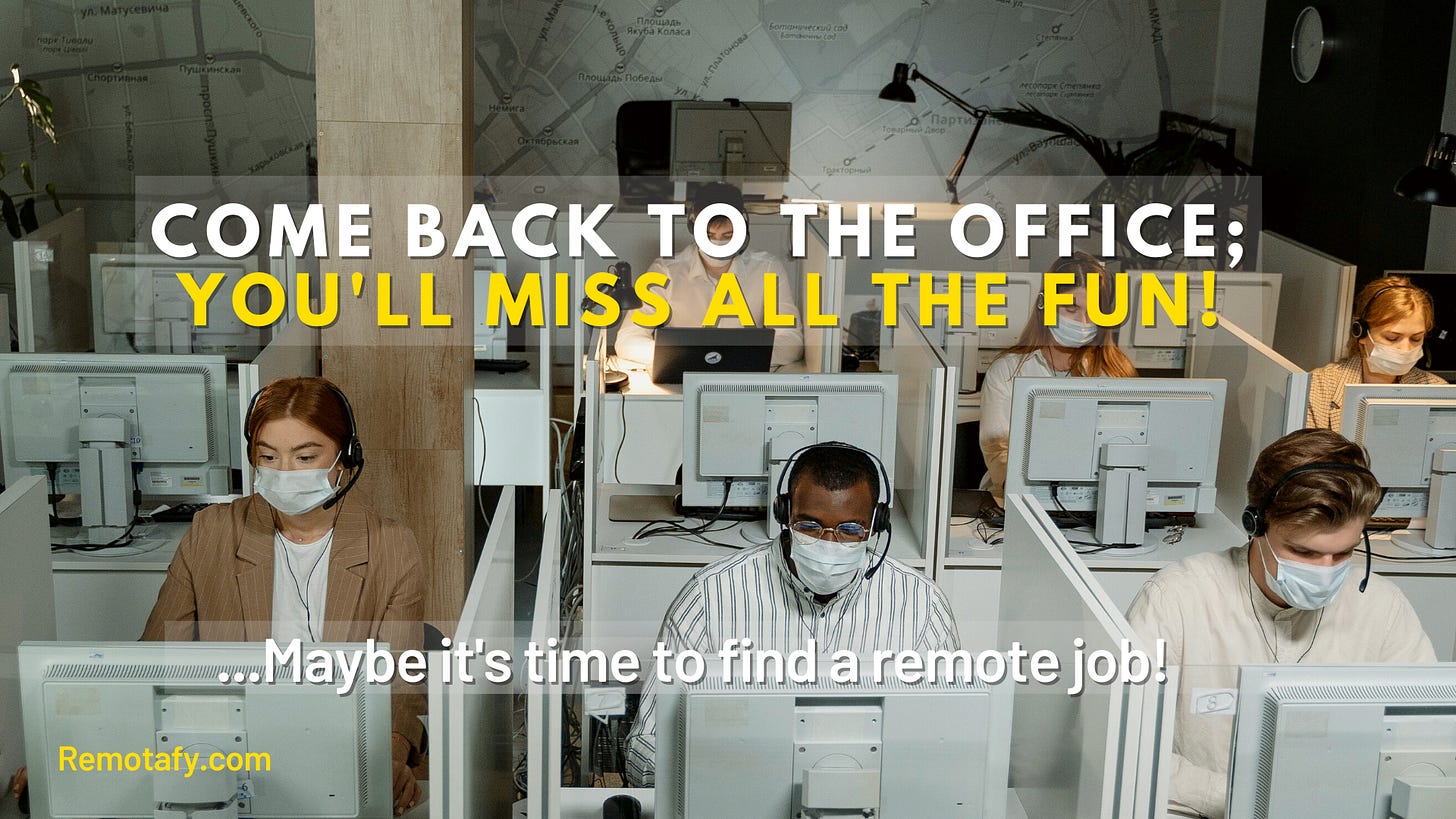Happy At Work
The Modest Moderna Cofounder And Multibillionaire Robert Langer Shares His Secrets To Success
They say, “Never meet your heroes.” This adage may be due to the disappointment found when someone you idolize doesn’t match up to your expectations. There should be a corollary to this axiom: “Sometimes, you’ll be surprised and delighted to learn that a high-profile person is amazing.” In an interview on the new Happy at Work podcast, I had the pleasure—along with my co-hosts, Harvard professors Michael McCarthy and Dr. Tessa Misiazek—to interview Dr. Robert Langer, the multibillionaire cofounder of Moderna, the biotech startup that helped save the world from the Covid-19 pandemic.
Companies That Truly Trust Their Employees Will Offer Them Flexibility—Working The Way They Want
We will soon know how business leadership views its workers. We’re at an important inflection point of the pandemic. It feels that the frightening part of the outbreak is waning, and now heading into a new working paradigm. On a regular basis, companies from all types of sectors are sharing how they plan to manage the transition from everyone working from home to a new way of operating.
We’ve Become A Nation Of Quitters: 4.4 Million Americans Left Their Jobs In September
According to the most recent data from the United States “Job Openings and Labor Turnover” (JOLTS) report, 4.4 million Americans left their jobs in September. For only one month, this is an enormous amount of people either quitting their job or switching to a new opportunity. The U.S. has 10.4 million job openings, surpassing pre-pandemic levels. In November 2019, there were 6.8 million job openings. Over the 12 months, ending in September 2021, new hires grew to 73.3 million and separations totaled 67.7 million, leaving a net gain of 5.6 million.
Airlines Left Flight Attendants To Deal With Rowdy, Violent, Drunk And Abusive Passengers
The temperature of the country has been steadily rising. It’s not the environment, but rather the people. Over the last nearly two years, we’ve endured unrelenting stress, anxiety, uncertainty and fear. Stuck at home for most of this time, people have been spending too much time on social media and watching partisan cable news getting enraged. Psychologists and health professionals point out that mental health, burnout, depression, fatigue and rage are some of the reactions to the trauma we’ve lived through.
4 Signs You’re Experiencing Burnout, According To A Cognitive Scientist
If you have had a long week at work, you might be justifiably exhausted and feeling like you can’t do anything productive. That feeling might be a sign that you need a nap or a relaxing weekend, or it could be a sign of more serious burnout. How would you know? I’ll talk about some of the key symptoms of burnout, but to begin with, it is a long-term state. It is common for people to have a bad day or even a bad week. You might say, “I’m feeling burned out today,” but if a good night’s sleep, a weekend away, a spa day, or some exercise has you ready to come back to work, you were tired rather than being burned out.
In A Hot Jobs Market, How Do I Ask For A Raise? Ask HR
Johnny C. Taylor Jr. tackles your human resources questions as part of a series for USA TODAY. Taylor is president and CEO of the Society for Human Resource Management, the world’s largest HR professional society and author of “Reset: A Leader’s Guide to Work in an Age of Upheaval.”
‘It’s The Biggest Open Secret Out There’: The Double Lives Of White-Collar Workers With Two Jobs
Remote working has made it easier than ever for staff to moonlight. But how do they cope with clashing meetings and two bosses? And can the rewards be worth the lies? Second jobs can be incredibly lucrative—just ask any of the MPs who gained at least £6m collectively from their side gigs since the start of the pandemic. But it’s not only MPs benefiting from second jobs: ordinary white-collar workers have been getting in on the act.
How Your Employer Can Keep Track Of Your Work At Home
Since the pandemic and the rise in people working from home, employers’ use of employee-monitoring programs has been growing rapidly. Employers say they’re tracking workers’ activity mainly for two reasons: to promote security and to boost productivity. What monitoring tools they use and how aggressively they use them vary widely. But the practice has alarmed unions and privacy advocates.




